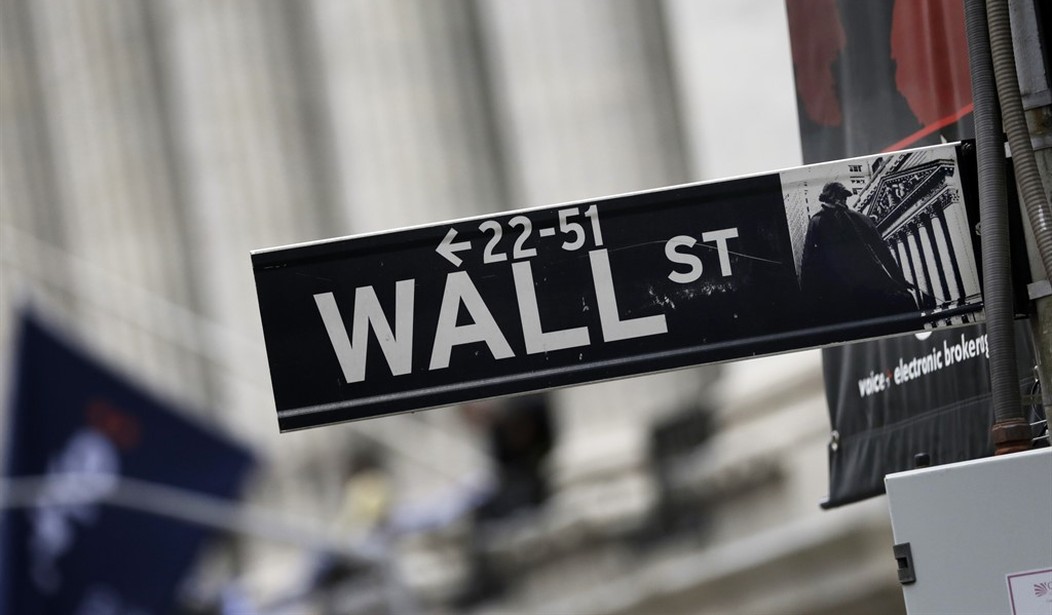The Wall Street Journal did a deep dive into the financial conflicts of interests of government officials. The news is neither good nor surprising.
Everybody already knows that our members of Congress routinely engage in insider trading, using the knowledge they gain as lawmakers to profit off of stock trades. Even more relevant, as lawmakers influence policies that directly effect the prices of stocks, giving them the power to manipulate the market in their favor.
That’s how impoverished politicians can become millionaires once they get elected.
What the Wall Street Journal is reporting is something different, and in some ways even more troubling. Bureaucrats who regulate industries without even the oversight that elections theoretically provide also trade the stocks of companies over which they have direct power. This gives them the power both to directly influence the price of stocks as well as the ability to essentially blackmail companies to implement policies favorable to the bureaucrats’ financial interests.
One could even call it a “deep state,” if one were so inclined. People who can run the country with no oversight and for their own benefit.
A Wall Street Journal investigation revealed that thousands of officials across the U.S. government’s executive branch disclosed owning or trading stocks that stood to rise or fall with decisions their agencies made.
Across 50 federal agencies ranging from the Commerce Department to the Treasury Department, more than 2,600 officials reported stock investments in companies while those companies were lobbying their agencies for favorable policies, during both Republican and Democratic administrations. When the financial holdings caused a conflict, the agencies sometimes simply waived the rules.
The Office of Government Ethics, which oversees the conflict-of-interest rules across the executive branch, is “committed to transparency and citizen oversight of government,” said a spokeswoman.
Among the findings of the investigation, which is the most comprehensive analysis of stock trading by officials in the executive branch of the government:
I won’t just repeat the findings, but here are some takeaways from the report:
- Numerous federal officials owned shares of companies lobbying their agencies
- Issues emerged at a wide array of agencies
- Some officials traded ahead of regulatory actions
- Federal officials are big technology investors
- Some officials made large and risky trades
There really is no comforting news in the WSJ report. Some of the stock holdings were minor, but on balance it is clear that officials are abusing their positions of trust to get rich off their positions. This is just the sort of thing that is supposed to differentiate the West from the corrupt banana republics we are supposed to be better than.
And it’s not as if it’s difficult to invest for retirement without directly holding stocks. Most of us in fact put our savings and investments into mutual funds that spread the risks over the market. But if you are manipulating the market, are you actually taking a risk?
About 70 federal officials or their family members reported using sophisticated techniques such as options trading and short selling, with some individual trades of between $5 million and $25 million. In all, the disclosure forms revealed more than 90,000 stock trades during the six-year period reviewed.
The husband of a Commodity Futures Trading Commission economist in a single year shorted nearly 3,000 stocks, betting on a drop in their price. Such trading is contrary to CFTC rules, but the agency waived them, fearing it could be sued.
I have said this before, but it bears repeating: this is the late stage of the American empire. As empires are rising they tend to put a lot of social pressure on individuals to conform to ethical standards in favor of the common good. As a rising power becomes wealthy and increasingly powerful the temptation to skim gets greater and greater, and the practice becomes common. This in turn leads to the downfall of the empire as the common good is replaced by the pursuit of the individual good of the powerful. This is not a comprehensive analysis by any means, but it captures an important phenomenon that leads to decline.
We are there, unfortunately.
America has proven itself to be resilient in a way that few powers have been, but we are no more immune to the erosive effects of corruption. Empires tend to fall when you least expect it, and I fear for our future.
You can read the entire investigation here. It is depressing reading, but important as well.








Join the conversation as a VIP Member